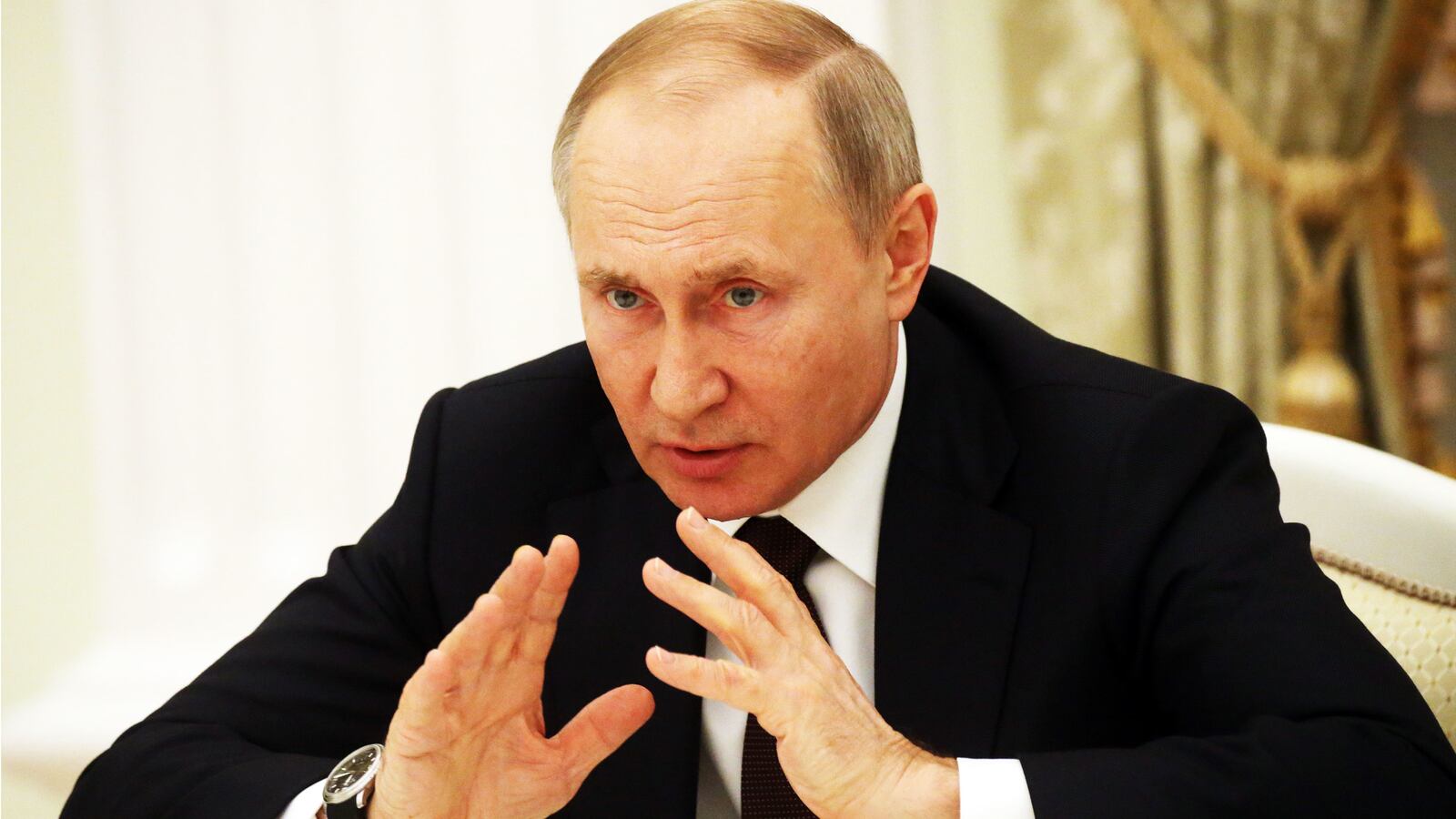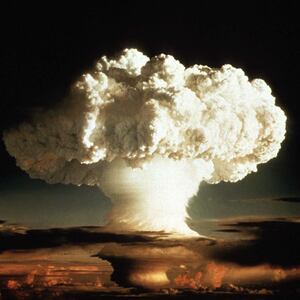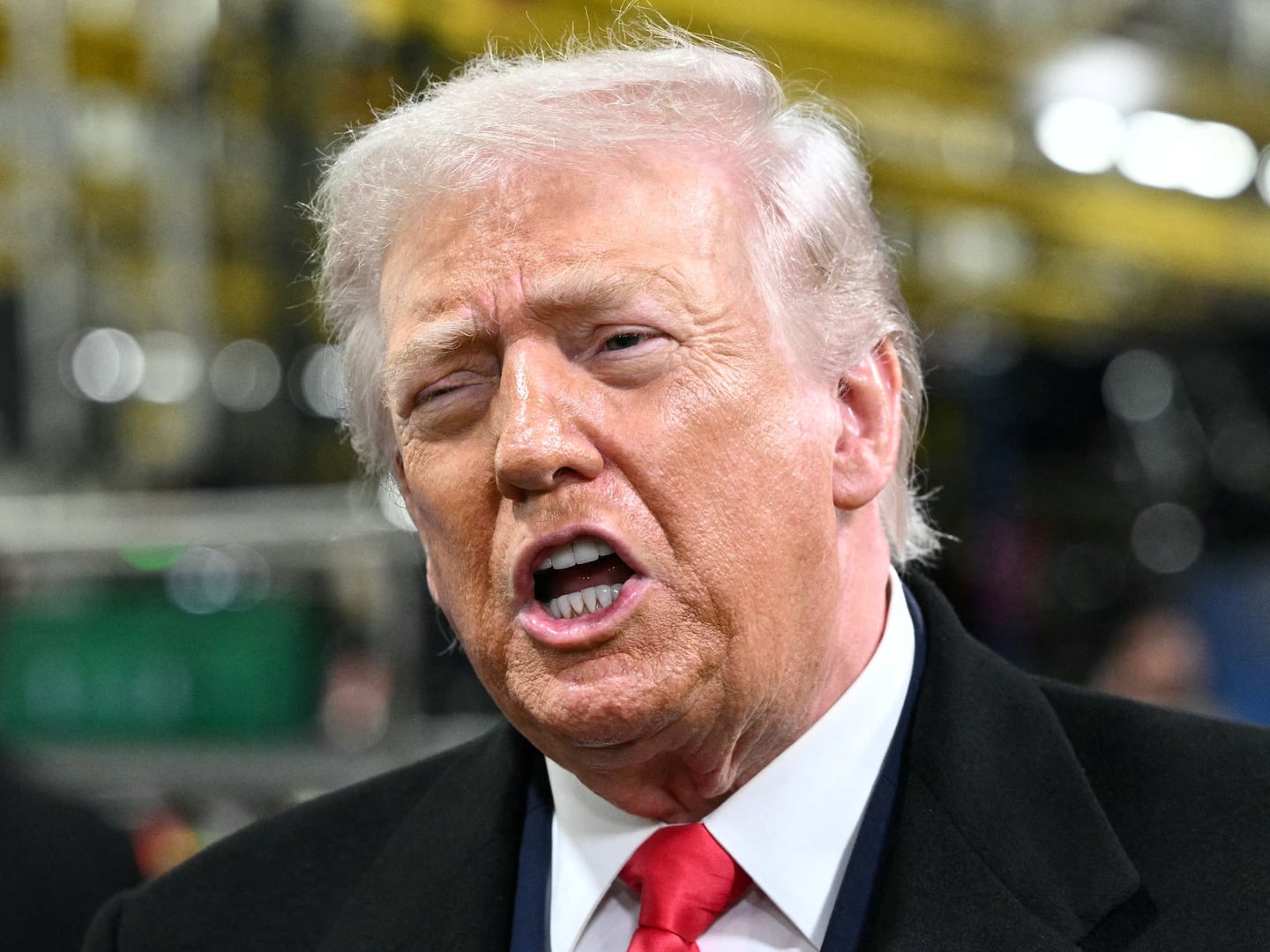America’s heartbreak brought considerable joy to Vladimir Putin’s Russia, but the gloating also exposes the deep ugliness of his regime.
Russian reporters covering protests on American soil appear to sympathize with the protesters, but state media reports for domestic audiences tell an entirely different story.
War correspondent Dmitry Steshin authored a despicably racist article for the Russian tabloid Komsomolskaya Pravda, purporting to give advice to the American protesters. His mockery of the ongoing protests in the United States made references to “muscular criminal Negroes,” described “twerking” as the “national Negro dance,” recommended the use of amphetamines, and called for blood, with as many deaths as possible.
While the article itself is a disgusting display of the casual racism that is very prevalent in Russia, Steshin went even further when he posted the same graphic material on his social media account. Steshin entitled the post “Kindly Advice to the Negroes of Minnesota and the United States” and urged: “Beat the whites until they turn black.”
But most revealing of all about Kremlin attitudes: the offensive material was shared in its entirety by none other than Margarita Simonyan, the editor-in-chief of the Kremlin-funded propaganda networks, RT and Sputnik.
This approach lies at the heart of the Kremlin’s information operations against the United States. While the English-speaking offshoots of Russian state media outlets appear to side with the plight of the American people, domestic reporting twists it into grotesque propaganda that serves only the interests of the Putin regime.
Russia’s 60 Minutes provided another glimpse into a typical session of U.S.-bashing, when host Evgeny Popov blatantly lied, saying: “Russia doesn’t have such levels of poverty as the United States,” then claimed, “Russia doesn’t have any cities the police cannot enter. Not one. I can name at least ten such cities in America. Ten no-go cities for the police, which they can enter only in APC’s (Armored Personnel Carriers) and fully armed.” Needless to say, he cited no examples.
Instead of siding with the protesters, Russian state media focused on the benefits Trump may be able to reap once he is able to crush the uprising. Political scientist Vladimir Kornilov suggested, “It would be better for Trump to wait it out—just not too long—to terrorize a significant part of the society; 83 percent of the Minnesotans are white, a great majority. That’s why he should wait it out, to create fear and terror. And then he can ride in on a white horse as someone who will restore order. That will be very important for him right now, especially in light of the economic difficulties.”
“This is to Trump’s benefit,” concurred Sergei Markov, a political consultant to the Kremlin.
The view from Moscow is curiously similar to the opinions reportedly held by Trump’s advisers, who believe that the impression he’s restoring law-and-order will help him to turn the unrest to his advantage—particularly with the seniors, whose support has diminished in light of the president’s poor handling of the coronavirus pandemic.
So, while the United States of America is reeling from escalating outrage and violence, on the Russian state TV show 60 Minutes, deputy of the State Duma Aleksey Zhuravlyov rejoiced: “This is an excellent situation. Because they’ve declared my country an enemy.”
Indeed, while Trump has tried repeatedly to cozy up to Putin, what we’re seeing in America now is what the Kremlin has wanted for a long time. Back in 2018, appearing on Russia’s state TV show The Evening with Vladimir Soloviev, deputy dean of world politics at Moscow’s State University, Andrey Sidorov, complained: "Unfortunately, Trump didn't reach the level of Abraham Lincoln and didn't drive the U.S. to civil war. That's sad. Hopefully, he'll become Herbert Hoover and at least drive them into a Great Depression."
In 2020, the Kremlin’s wish list is on the verge of being fulfilled, as the perfect storm of the coronavirus pandemic, economic turmoil and civil unrest has been unleashed upon the United States.
But it’s not only the Kremlin that’s rejoicing. Pandemonium unfolding in the United States hit the sweet spot at the intersection of Russia’s and China’s anti-American propaganda, cross-pollinating for maximum exposure. During the broadcast of Russia’s 60 Minutes, host Evgeny Popov repeatedly showcased an offensive image posted by People’s Daily (Zhenmin Zhibao, an official newspaper of the Central Committee of the Communist Party of China) on its Russian-language Facebook page. It depicted the Statue of Liberty, kneeling over the neck of George Floyd. Facebook flagged the post for “violent or graphic content,” but did not remove it.
“Pretty scathing,” Popov remarked. Political scientist Vladimir Kornilov opined that after being “hounded” by the United States for its human rights violations, China has every right to be scathing.
For their part, the Chinese media re-published the Russian Foreign Ministry’s concerns “about growing police violence against and unjustified detentions of journalists covering protests in the United States,” stating that Minneapolis police officers deliberately pepper sprayed Mikhail Turgiyev, a correspondent with the Russian news agency RIA Novosti, after he identified himself as a journalist. The displays of police brutality toward members of the free press presented a unique opportunity for the authoritarian regimes of Russia and China to turn the tables on the United States.
Dmitry Kiselyov, the host of Vesti Nedeli—the most popular Sunday news show in Russia—criticized the United States for its police brutality, homelessness and rampant unemployment. “Listen,” he said, “This America is trying to teach the entire planet how to live? Based on what?”
Vladimir Soloviev, the host of The Evening with Vladimir Soloviev, played clips depicting U.S. police abusing the protesters. He commented: “Watch the way American cops are acting, for anyone who ever had any complaints about our police.”
Anticipating a goldmine of anti-American propaganda, Russian state TV has dispatched multiple reporters to cover the protests in the United States, up close and personal. 60 Minutes also featured an interview with a Russian-speaking protester, who described the events in vivid detail. Russian-speaking locals are supplying Russian tabloids with horror stories about alleged rapes and murders currently taking place in Minneapolis.
Reporting from Minneapolis, Vesti Nedeli reporter Valentin Bogdanov ended up being featured in the background of a CNN News segment. Bogdanov sarcastically quipped: “Apparently, this is the very ‘Russian interference’ that is being discussed on the liberal American television channel.” Kremlin-controlled state media have long scoffed at the sanctions imposed by the United States against Russia for its interference in U.S. elections, the annexation of Crimea, human rights violations, and other offenses against U.S. and international law.
Since last year when U.S. President Donald J. Trump suggested inviting Russia to participate in a future G7 Summit—without demanding or extracting any concessions—Russian experts and pundits believe that a reset is within reach. (This year, German Chancellor Angela Merkel declined to attend the G7 scheduled for June in the U.S., forcing Trump to postpone the meeting even as he claimed the group is passé.)
The prospect that all or most of the sanctions might be lifted during Trump’s second term overrides the Kremlin’s periodic dissatisfaction with the course that is being charted by the current administration. So in spite of their poorly concealed irritation with the unpredictable showman who has his finger on the nuclear button and is floating the idea of renewed nuclear testing, pro-Kremlin pundits, experts and government officials are still rooting for Trump, not least, the agent of America’s internal chaos.
Whether or not the turmoil stands to benefit Trump’s re-election prospects, it most certainly serves as a handy distraction from Russia’s own problems—from dwindling human rights and growing dissatisfaction with the Putin regime, to the crumbling economy hit by the oil slump and the heavy toll of the coronavirus. Appearing on Russia’s 60 Minutes, MP Aleksey Zhuravlyov summed up the pro-Kremlin point of view about the unrest in the United States: “I couldn’t care less who’s playing whom. What’s important is that it doesn’t happen here.”






